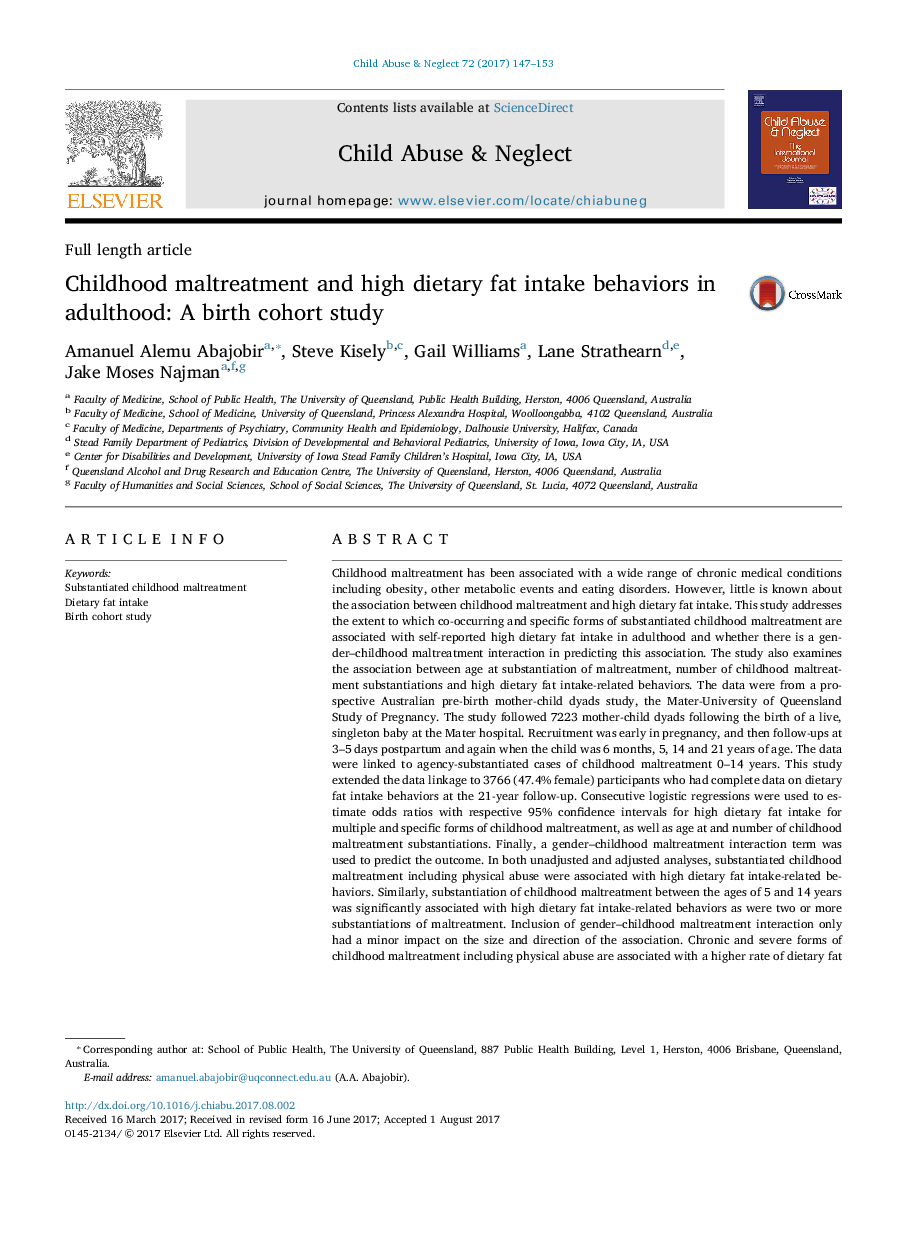ترجمه فارسی عنوان مقاله
بدرفتاری دوران کودکی و رفتارهای مصرف چربی در رژیم غذایی بزرگسالان: مطالعه کوهورت تولد
عنوان انگلیسی
Childhood maltreatment and high dietary fat intake behaviors in adulthood: A birth cohort study
| کد مقاله | سال انتشار | تعداد صفحات مقاله انگلیسی |
|---|---|---|
| 127686 | 2017 | 7 صفحه PDF |
منبع

Publisher : Elsevier - Science Direct (الزویر - ساینس دایرکت)
Journal : Child Abuse & Neglect, Volume 72, October 2017, Pages 147-153
ترجمه کلمات کلیدی
محکومیت کامل کودکانه، مصرف چربی رژیم غذایی، مطالعه کوهورت تولد،
کلمات کلیدی انگلیسی
Substantiated childhood maltreatment; Dietary fat intake; Birth cohort study;

